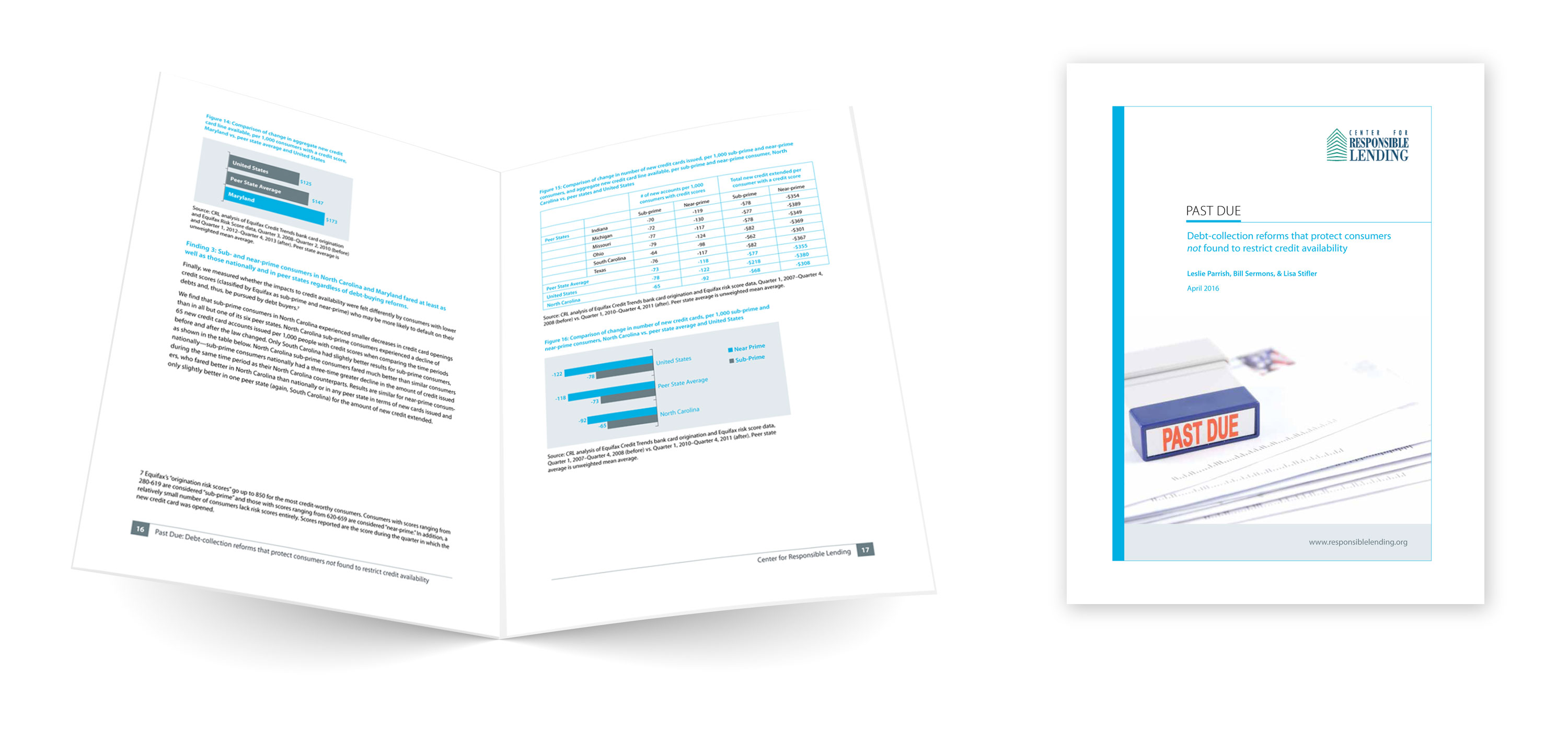Since 2001, we've designed and edited dozens of data and policy reports for the Center for Responsible Lending. We’re proud to be a small part of the critical work CRL does to help ensure a fair, inclusive financial marketplace for all Americans. In April of 2016, we provided editing and graphic design for this 41-page report, the authors of which were CRL staff members Leslie Parrish, Bill Sermons, and Lisa Stifler.
This report outlines how borrowers can find themselves facing a default judgment on a debt they do not in fact owe.
The Conclusion and Policy Recommendations of the report are as follows:
We find no evidence that additional protections for consumers have a negative effect on credit card availability, even for consumers with non-prime credit scores. State and federal officials should continue to strengthen debt-collection and debt-buying rules and laws to better protect consumers.
At the state level, officials should:
• Require more detailed and accurate evidence when debt buyers file lawsuits. State legislatures should adopt legislation or state court systems should establish statewide court rules that require debt buyers to possess more detailed and accurate information and evidence when they sue to collect on the debts. This information and evidence should include the name of the original creditor (which should be familiar to the consumer); information about the consumer to ensure that the correct person is being sued; an itemization of the amount claimed to be owed; documentation establishing the debt, such as the original contract or credit application and recent billing statements; proof of ownership, including documentation establishing a complete chain of title; and the terms and conditions that applied to that specific account. Much of this information should also be reviewed by debt collectors and debt buyers before collecting out of court.
• Tighten evidentiary requirements for obtaining a judgment, including a default judgment or summary judgment on debt-related cases. States, through legislation or court or administrative rules, should require plaintiffs in all debt-collection cases (including those in small claims courts), to establish through admissible evidence the following: (1) the debtor-defendant’s underlying liability on a contract; (2) its own standing to sue by virtue of an uninterrupted chain of title; and (3) accurately and legally-calculated damages. States should also require proof that the plaintiff served the complaint and motion for default judgment to the borrower’s current home address.
At the federal level, officials should:
• Regulate the flow of information in the debt-collection market. Federal regulators, including the CFPB and OCC, should require increased and accurate documentation and information for each debt sold at the time of sale, including: (1) documentation necessary to substantiate and verify the debt (i.e., the identity of the debtor, the original creditor, that the debt is owed, the amount of the debt, and that the debt buyer is the true and only owner of the debt); (2) the evidence that debt buyers must have to file lawsuits; and (3) important information about the consumer, such as whether the consumer has an attorney, past collection history, and dispute history. If they cannot provide the required information, banks and other creditors should be prohibited from selling the debt. By requiring this information at the federal level, federal regulators will pave the way for states to pass legislation and change regulations and court rules to address debt-buyer abuses in debt-collection litigation prevalent in their states.
• Prohibit the initiation of collection efforts on any debt unless the debt buyer has the information necessary to substantiate and verify the debt being sought. The CFPB should prohibit debt buyers from initiating collections on any debt without first verifying the debt, as indicated above.
